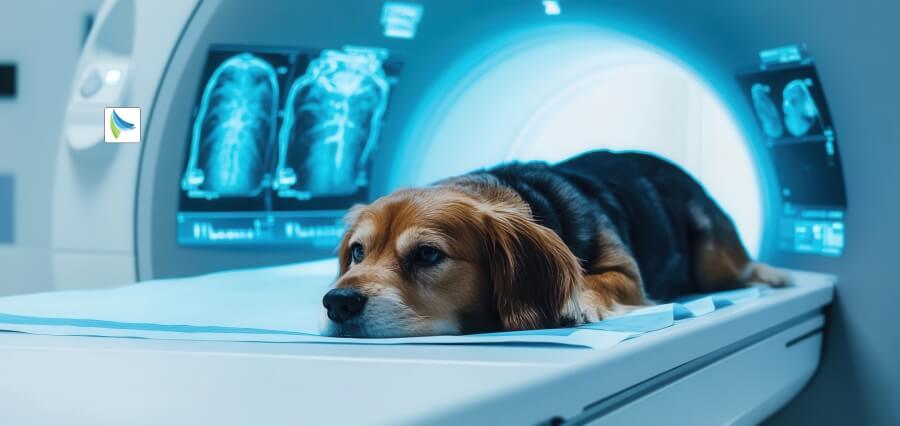In an increasingly conscious world of sustainability, animal welfare, and food security, the animal health business is quickly evolving. 2025 marks a milestone, when investment trends are not just pursuing returns but propelling innovation towards a better future.
From precision diagnostics to biotechnology, emerging technologies, open-ecosystem collaboration, and escalating global demand for safe and sustainable animal care are reshaping the future of animal health innovation.
The New Era of Investment: A Shifting Priorities
In the past, animal health rested in the hands of vaccine, antibiotic, and feed additive-focused pharma giants and agribusiness behemoths. Although these remain essential, investors in 2025 have their sights on more than traditional solutions. Venture capital, private equity, and strategic corporate investment are flowing into startups and scale-ups transforming how and what we monitor, treat, and avoid animal disease.
Investors now challenge companies that are fusing veterinary science with data analysis, artificial intelligence, and genomics. This is motivated by the fact that innovation in animal health is not only a moral and agricultural imperative but a business opportunity that can be scaled globally and is lucrative.
Technology at the Core of Innovation
Among the characteristic trends of 2025 is the use of digital technologies in veterinary health practice. Wearable sensors, real-time monitoring technology, and AI-based diagnostics are enabling early detection of disease, minimizing unwanted treatment, and enhancing animal welfare outcomes.
For instance, in cattle raising, ingestible sensors and smart collars monitor temperature, diet, and mobility—allowing one to act proactively instead of act reactively. This type of animal health technology that contributes to innovation attracts investors who perceive the economic reasoning as well as the ethical appeal of intervening in this way.
In pet care, mobile apps which unite pet owners with telehealth, reminders for vaccinations, and remote diagnosis are flourishing. Pet technology startups are receiving a spate of seed and Series A rounds as consumers’ interest in easy and anticipatory care increases.
Biotechnology and the Emergence of Alternatives
Biotech is at the forefront of rethinking animal health innovation. Increased demand for mRNA and other new delivery-based vaccine platforms in 2025 is driven by human health-inspired breakthroughs. They are now being brought over to treat zoonotic disease and endemic infection in animals more efficiently.
Investors are also funding the creation of alternatives to antibiotics, which have fallen under suspicion by emerging antimicrobial resistance. Microbiome therapy, probiotics, and immune-stimulatory nutraceuticals companies are getting large funding rounds. Not only do they preserve animal health, but they also solve important public health issues, so they are twice as appealing to socially responsible investors.
Sustainability as a Driving Force
Animal health cannot be left out when it comes to climate change and sustainability that have an impact on almost every industry. Environmental impact reduction in 2025 is linked to innovation in animal health. Healthy animals provide fewer resource consumptions, lower greenhouse gas emissions, and sustainable food production.
Investors are supporting platforms for precision agriculture and environmental surveillance—minimizing waste, improving feed conversion, and reducing the carbon imprint of animal agriculture. The investment community is more interested in businesses that provide not only scalable technology but also facilitate ESG (Environmental, Social, and Governance) objectives.
Additionally, regenerative farming practices that involve holistic animal welfare strategies are becoming popular. Full animal welfare solutions in regenerative systems by corporations are being considered the next frontier of sustainable agriculture business.
Collaborative Ecosystems: Industry, Academia, and Startups
One other key trend in 2025 is the creation of collaborative ecosystems involving industry players, startups, and academia. Innovation hotspots and animal health accelerators are being built by research institutions and universities. These hotspots are innovation idea incubators that are then funded by venture capital and industry partnerships.
This multi-stakeholder model guarantees that animal health innovation is based on leading-edge science, but also commercially feasible. Big pharma and agri-tech companies have corporate venture arms that are proactively seeking early-stage tech and don’t only introduce capital, but also counsel, room, and access to market.
The outcome is a high-quality, integrated ecosystem where concepts can quickly grow from bench to farm.
Regulatory Support and Market Expansion
Government and regulatory authorities are increasingly accepting the need for pro-active animal health interventions. In some of the globe’s biggest markets, on-the-ground governments and streamlined approval procedures are becoming drivers of innovation, along with increased R&D spend. One Health initiatives that accept the inter-relationship between animal, human, and environmental health are also proving to be a spur to investment.
Emerging markets are also providing new avenues for animal health innovation. As incomes rise and urbanization accelerates, demand for quality pet care services and for animal protein is growing in regions such as Southeast Asia, Africa, and Latin America. Investors are also not missing out on the opportunity and are investing in local solution startups in these high-growth markets.
Conclusion: The Future is Health-Driven and Holistic
With each passing month as we step further into 2025, there is no question but that animal health innovation is no flash in the pan—it’s an upheaval in how we conduct animal welfare, food supply, and public health. From precision farm tech to biotech-derived medicines and digital pet wellness, the potential is huge and diverse.
Investors are not only looking for returns; they’re creating a world where animal health is safer, smarter, and more sustainable. They’re doing this while creating a better future for animals, and for people and planet too.
Read More: Government Support Mechanisms for Agri-Entrepreneurship Development













